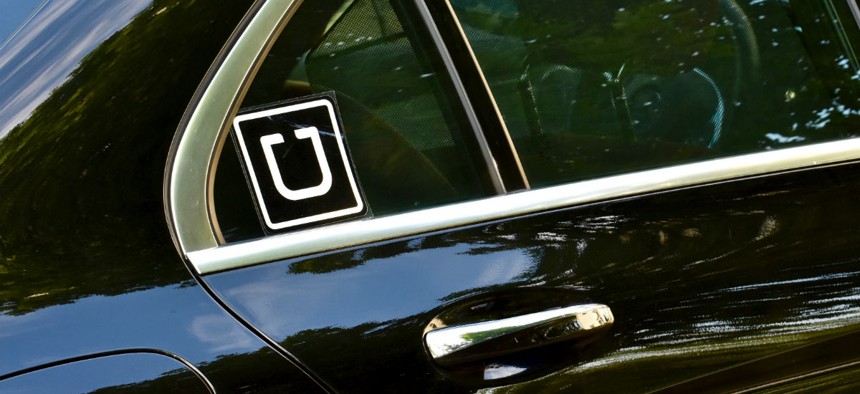
Everyone Seems to Want Federal Employees to Use Uber
Administration and Congress grapple with overlapping measure to boost rideshare usage.
In Congress and the White House, and from both sides of the political aisle, the same idea is gaining momentum to ensure federal employees spend less of taxpayers’ money: use Uber.
On Thursday, the House unanimously passed a measure with bipartisan sponsorship to require the General Services Administration to issue regulations allowing federal employees to use rideshare companies like Uber and Lyft, as well as bikeshares, for official travel. The passage came after the House Oversight and Government Reform Committee last week approved a separate bill to allow federal workers in the Washington, D.C.-metropolitan region to use ridesharing options to get to work through 2018. That bill is intended to give feds an alternative commuting option while the Washington Metrorail completes extensive system repairs and upgrades known as SafeTrack.
Both of those measures have gained momentum despite July guidance from GSA clarifying federal agencies should reimburse employees who use companies like Uber and Lyft for any travel on official business. Issued through a bulletin on the Federal Travel Regulation, the update was meant to clarify a policy many agencies had already implemented. While each agency manages the final authorization of travel expenses based on internal policy, GSA said federal employees can use mobile ride-hailing applications “when it is advantageous to the government.”
GSA wrote in a fact sheet accompanying the bulletin: “The simple answer is that yes, as a federal employee traveling on official business, you can be reimbursed for rideshares in accordance with your agency procedures and local laws.”
Despite the guidance, Rep. Seth Moulton, D-Mass., who introduced the Government Travel Modernization Act the House passed Thursday, said his measure would bring further clarity and encourage more government use of ridesharing companies.
“We know that this increased engagement in the sharing economy will reduce federal spending and by passing our bill today, the House has agreed to our idea that we can save taxpayer dollars by bringing government travel into the 21st century,” Moulton said.
Rep. Will Hurd, who cosponsored the bill, said it would make federal government a more attractive place to work.
“The federal government does not have to lag behind-the-times with antiquated policies,” Hurd said. “With simple updates like the MGT Act, we can become more attractive as an employer, more efficient in getting people where they need to go, and save taxpayer dollars while doing so.”
Sens. Ron Johnson, R-Wis., and Tom Carper, D-Del, the respective chairman and ranking member of the Homeland Security and Governmental Affairs Committee, introduced companion legislation in the upper chamber last week. Under the bill, each agency would report its spending on the ridesharing reimbursements to GSA.
Last year, Rep. David Schweikert, R-Ariz., put forward a measure to force some agencies get rid of a portion of their fleets and instead use companies such as Uber and Lyft. The measure failed when Schweikert attempted to attach it to the 2015 highway bill.
NEXT STORY: Best Dates to Retire 2017







